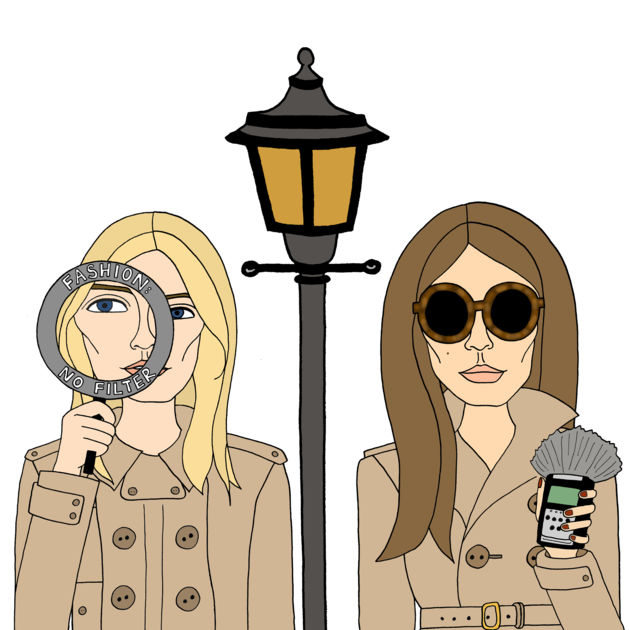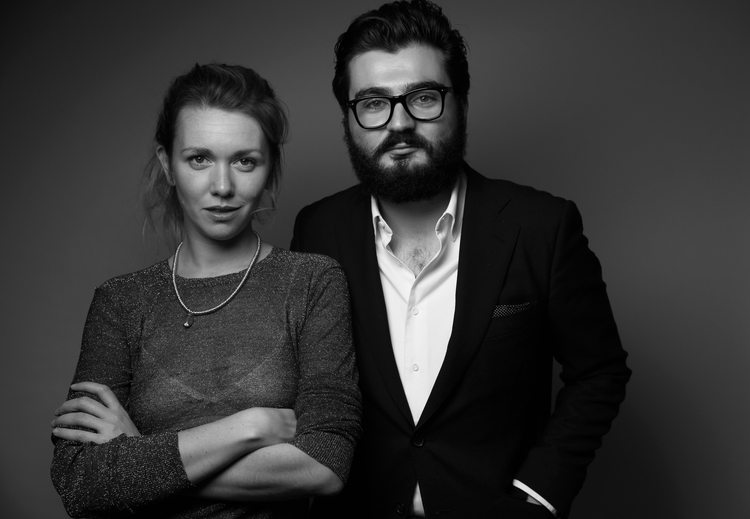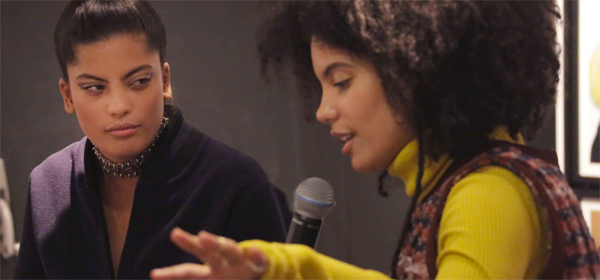Mar 8, 2018
Are podcasts the new blogs?
Mar 8, 2018
Are podcasts the new blogs? Are they becoming the latest main digital influencers, taking the place of blogs? Indeed, the next Chiara Ferragni - the undisputed blogger queen, reportedly able to generate a $2 million revenue per year thanks to 'The Blond Salad' blog - may well be found among the voices broadcasting on the smartphones of Millennials.

In the USA, podcasts debuted in 2005, when Apple made it possible to download and listen to audio files on iTunes. It was not before the early 2010s that podcasts began to establish themselves as a popular medium, finally becoming mainstream in 2014, when Apple featured its podcast app on the iPhone, and investigative journalism podcast 'Serial' beat all previous records, with 175 million downloads as of today across the 12 episodes of the first season.
Fashion soon took an interest in the new medium, and 'The American Fashion Podcast' was launched in May 2014 by Charles Beckwith, tackling industry issues such as the future of retail and the role of women in the fashion world. Since 2015, the fashion media at large, from Yahoo Style to Vogue, followed suit, introducing podcast series with varying degrees of success.
Fashion bloggers did the same, like New Yorker Leandra Medine, creator of the ‘Man Repeller’ site. In August 2015, she launched the 'Oh Boy' fashion and beauty podcast, followed a few months later by another show, 'Motorcycle', focusing on culture and society. In 2016, another star fashion blogger, Frenchwoman Garance Doré, launched the 'Pardon My French' podcast.
Again in France, in December 2016, Camille Charrière and Monica Ainley launched the 'Fashion No Filter' podcast, interviewing fashion industry personalities and discussing issues such as the secret of street style, designers’ muses and haute couture. In January 2017, journalist Valérie Tribes started 'Chiffons', exploring the wardrobes of various industry celebrities, from designers to fashion journalists.

The reason why podcasts are so popular is that they have a way of finding their audience. In the USA, podcast broadcasters use the Podtrac analytics tool, and many of them (CBS Local, Bloomberg, The New York Times, Condé Nast, etc.) contributed to the publication of 'Podcast Playbook – A guide for Marketers' with the Interactive Advertising Bureau. According to this document, one quarter of people over the age of 12 listen to podcasts on a monthly basis. It is a highly qualified target audience (age 25-49, with high socio-professional standing, urban dwellers, social media and mobile phone users) which reacts positively to podcast advertising.
According to a survey by US podcast advertising agency Midroll, 67% of podcast listeners are able to name a product or offer featured in an advert they listened to in a programme. And 61% of them stated they bought a product or service they heard mentioned in a podcast.
In France, Joël Ronez, co-founder of podcast network Binge Audio, lamented the absence of official audience data. "We are working with other French [podcast] production companies to be all featured on Podtrac, gathering data and setting up a tracking system. Without a reliable tool for measuring sector growth and audience ratings, and defining [listener] targets, we cannot build a proper business." Meanwhile, advertising is valued at between €30 and €80 per 1,000 on Binge Radio podcasts, an order of magnitude higher than display ads, justified, among other things, by the adverts' format: "Brands are integrated within the programme. Ad-blocking tools cannot function, since it is show hosts themselves who talk about the products, and this cannot be filtered out. This is why the format is interesting for advertisers."
Monica Ainley, co-founder of the 'Fashion No Filter' podcast, asked about the partnership with dating app Bumble, replied: "They wanted us to advertise them in a natural way. This is why we slotted them in the middle of our episodes, and why we talked about them using a light tone, making gentle fun of Camille's love life." Podcaster and journalist Valérie Tribes is frequently asked by brands to generate content for them, another way for production houses and podcast publishers to monetise their work.
According to Joël Ronez, "it's possible to produce a high-quality brand content programme for €50,000, a relatively small sum of money." Podcasts are about low costs, captive audiences who cannot miss the adverts and, above all, the opportunity for show hosts to feature directly and exclusively on consumers' mobile phones. According to a survey by Podtrac Analytics in fact, 85% of listeners enjoy podcasts on their mobiles.

According to Nardjisse Ben Mebarek, Digital Director at international trend agency NellyRodi, brands wishing to invest in this medium must "be willing to tell stories that are consistent with their values and brand narratives." She also added that "[podcast ads] aren't simply an advert in a magazine, consumers can no longer be misled, they want to make sure that podcasts and partner brands produce clear, consistent content."
Some brands have already gone to the next level and launched their own podcasts, like Asos with 'My Big Idea' in 2015, eBay with 'Open Your Business' in 2016, and Chanel with '3.55' in autumn 2017. The latest in France were perfumery retailer Sephora, which produced its podcast series last November, in parallel with the launch of its app on Google Assistant, and maternity wear brand Joli Bump in early 2018. Nardjisse Ben Mebarek praised their initiatives: "Producing this kind of podcasts and broadcasting them to the general public is a rather smart, democratic way of creating quality content, even bordering on the intellectual, though still talking about make-up and trivial things."
Millennial consumers are of course in everyone's sights. As their predecessors did with blogs, Millennials are growing very fond of this new digital medium which, like blogs, has sparked the sudden interest of influencers, media and brands. But the parallel doesn't stop here. Valérie Tribes said that, to set the prices of the first advertising slots in her podcast, she "based herself on the going prices on blogs and Instagram." However, she warned that "it's true that the situation is similar to that of the early days of blogging, but beware, producing a podcast is much more complicated, you need to be a journalist." Monica Ainley concurred, adding: "This is the dawn of podcasting, and I think it will become a genuine medium, and it could truly turn into a full-time job for some of us." Much then, like blogs.
Copyright © 2024 FashionNetwork.com All rights reserved.



























